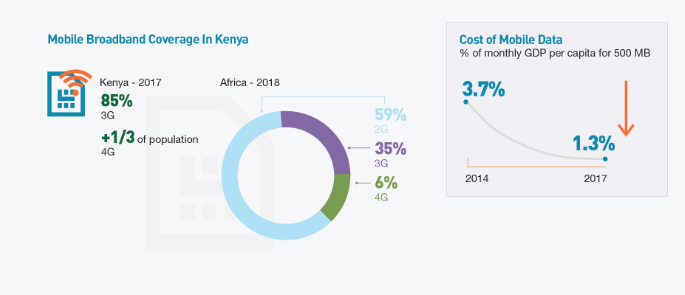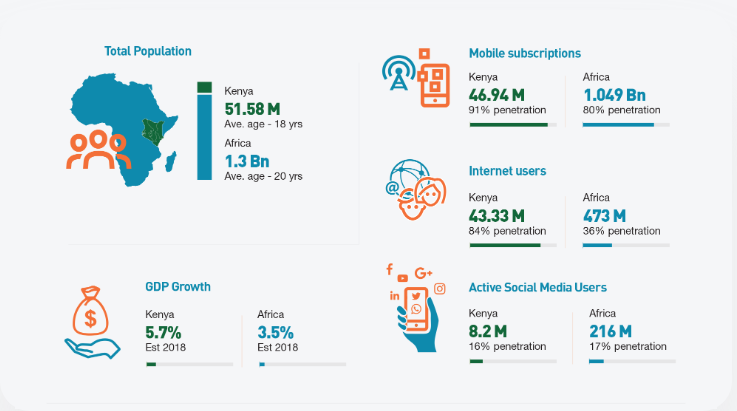Over the recent month, the two biggest telecommunication service providers in Kenya, Safaricom and Airtel Kenya have at each other’s throat with scathing Ad attacks against each other.
No doubt this competition among the telecoms breeds innovation and affordable pricing among other things. However, when compared to their East African neighbors, Kenyans still pay higher for mobile data.
That is according to a Kenya Mobile White Paper tabled by the biggest e-commerce retailer in Kenya; Jumia Kenya. The e-commerce site established that a little under 34% of Kenyans are active consumers of internet connection in the country. What bars the majority of the 45 million Kenyans from accessing the internet is the high cost of mobile data in the country.
The Jumia report says just 13 million, out of the 45 million, are active online. Majority of the 13 million often visit social media sites like WhatsApp, Facebook, and Twitter. Sam Chappatte, the MD of Jumia Kenya officiated the tabling of this whitepaper report.
Sam reiterated on the urgent need to bring down the cost of mobile internet. He also highlighted the fact that smartphone remains the primary gateway for most people for accessing the internet. As a matter of fact, Kenya is the leader in mobile internet consumption across the continent of Africa.
All the telecommunication service providers in the country currently provide both 4G and 3G networks. 3G coverage in the country has increased from 67% in 2014 to 85% in 2017. While 4G still lags behind, it has nonetheless made considerable strides with over a third of Kenyans living in areas with the LTE Network.

Cheap Smartphones
There is a proliferation of affordable smartphones into the country; primarily imported from China. The Jumia Kenya report says the average amount spent a typical Kenyan to buy a smartphone was around $86 in 2018, down from $18.6 in 2014.
Kenya just recently overtook Nigeria as the global leader in mobile internet; the country now has 83% mobile internet penetration.



